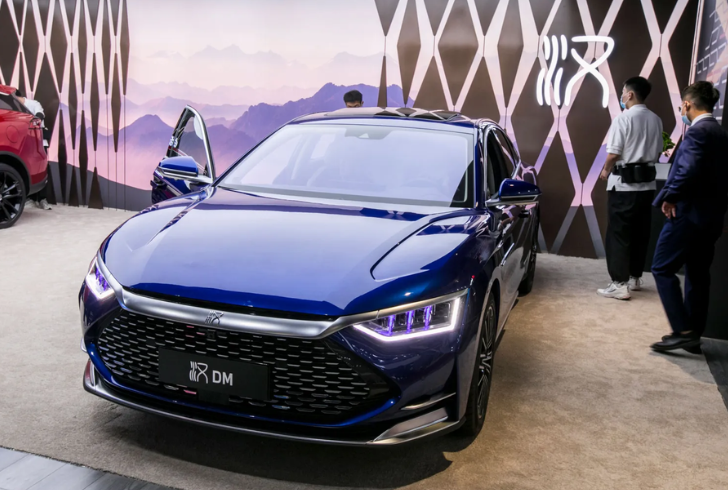The US ban on smart cars has taken center stage in the ongoing debate surrounding national security and foreign technology. The U.S. Commerce Department has recently announced a proposal to restrict the sale and import of smart vehicles that incorporate specific Chinese and Russian technologies.
This move is driven by concerns about the potential risks associated with foreign-made components in US cars, including the vulnerability to hacking, data collection, and even remote control. By implementing this ban, the U.S. government aims to safeguard national security and protect critical infrastructure from potential threats.
National Security Concerns Behind the Proposal
This proposal is not just about trade or economic competition. According to U.S. officials, the issue revolves around protecting critical infrastructure and personal privacy. The smart car industry has seen rapid advancements in recent years, with vehicles becoming increasingly connected through Bluetooth, Wi-Fi, and cellular technology. These connections enable features like remote diagnostics, satellite communications, and driver assistance systems, but they also open the door to potential cyber threats.

Instagram | secraimondo | Commerce Dept. proposes ban on Chinese and Russian tech in smart cars.
The embedded Chinese and Russian technology in these vehicles could, in extreme cases, allow foreign actors to remotely access and control cars across the country. This level of control could lead to disastrous consequences, such as causing crashes, blocking traffic, or even gaining access to sensitive data about vehicle owners. “In a worst-case scenario, foreign adversaries could take control of every connected vehicle in the US at once, creating chaos,” said Gina Raimondo, Secretary of Commerce.
What This Ban Means for Smart Cars
The ban would affect vehicles introduced in the model year 2027 or later. Hardware and software deemed risky due to their Chinese or Russian origins would be prohibited from being used in these vehicles. However, cars already manufactured with foreign-made technology on U.S. roads will not be impacted by this regulation. The rules are set to take effect gradually, with hardware bans applying to vehicles manufactured from model year 2030.
It is crucial to note that the ban is part of a larger effort to secure the US’s technological future. With China and Russia making inroads into the connected car market, US officials have voiced concerns about the risks posed by these foreign technologies, particularly in critical sectors such as semiconductors and artificial intelligence.
The Role of China and Russia in the Connected Car Market
China has become a significant player in the global connected car market. Chinese companies have made substantial investments in advanced automotive technologies, raising concerns in the US about the security risks these companies might pose. The Chinese government has also shown growing interest in vehicle data, leading to tighter regulations on companies like Tesla in China, which are required to ensure their data does not pose a risk to Chinese national security.
While China has denied allegations of hacking and data collection from US cars, the US government remains vigilant. The proposal highlights the dangers of relying on foreign technologies, particularly from nations with which the US has tense relations. According to national security adviser Jake Sullivan, allowing millions of smart cars equipped with vulnerable technology to roam US roads increases the risk of disruptions and sabotage by adversaries.
The Impact on Automakers and Consumers
The proposed ban, set to take effect in stages, is not only a national security measure but also a significant challenge for automakers. While many manufacturers will likely seek alternative sources for the technology they use, the costs of this transition are expected to be high. The Commerce Department is expected to release an economic analysis that outlines the potential costs for both automakers and consumers as they adapt to the new regulations.
In addition to concerns about the economic impact on car manufacturers, there are also broader implications for consumers. A shift away from foreign-made software and hardware could mean that new cars will need to be equipped with different technology, which could affect vehicle performance, connectivity features, and pricing.
Broader Efforts to Strengthen National Security

techcrunch.com | As the auto industry evolves, the future of smart cars will rely on innovations that are both advanced and secure.
The proposed US ban on smart cars is a significant step in the ongoing geopolitical struggle between the United States and its adversaries. This ban is part of a broader strategy by the US government to secure its critical infrastructure and protect sensitive data from foreign threats.
It follows previous actions, such as the ban on certain Russian cybersecurity products, which were deemed a potential risk to national security. The US has also taken steps to regulate the use of certain Chinese technologies, further emphasizing the ongoing competition between the two superpowers for technological dominance.
Future Implications of the US Ban on Smart Cars
The announcement of this proposal reflects the growing tensions between the US and China, as well as the need to safeguard critical technologies. The connected car industry, with its increasing reliance on sophisticated networks and global supply chains, has become a flashpoint for concerns about cybersecurity, data privacy, and national security.
As the US moves forward with its proposal for a smart car ban, there is likely to be an ongoing debate about how to strike the right balance between security and technological progress. With the global auto industry continuing to evolve rapidly, the future of smart cars will depend on innovations that are not only cutting-edge but also secure from foreign interference.
The proposed US ban on smart cars, with a focus on Chinese and Russian technologies, highlights the intersection of national security and the rapidly advancing automotive sector. As countries compete to secure their technological futures, it remains to be seen how these measures will reshape the landscape of connected vehicles and their role in our everyday lives.




